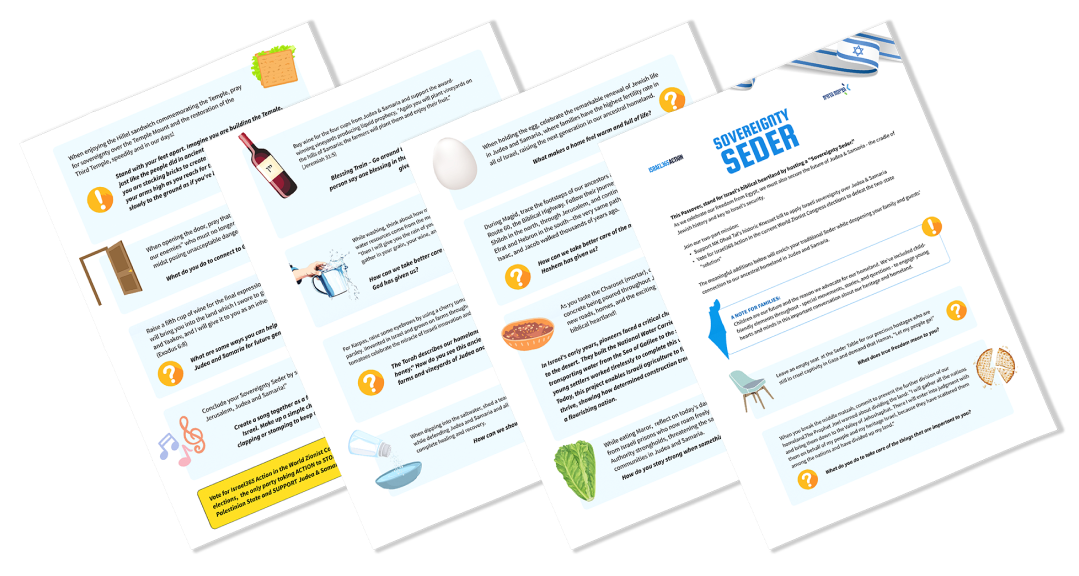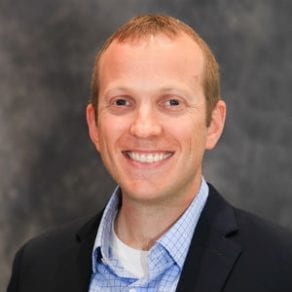An Interview with Rabbi Tuly Weisz, Founder of Israel365 Action
By Zahava Schwartz
As Passover approaches, Jewish families worldwide are preparing for one of the most significant holidays in the Jewish calendar. This year, Israel365 Action has introduced an innovative new resource designed to add profound meaning to the traditional Seder: the “Sovereignty Seder” guide. Zahava Schwartz sat down with Rabbi Tuly Weisz, founder of Israel365 Action, to discuss this timely initiative that connects the ancient Exodus narrative with contemporary discussions about Israeli sovereignty over Judea and Samaria.
Zahava Schwartz: Rabbi Weisz, what inspired you to create the Sovereignty Seder guide?
Rabbi Tuly Weisz: As Passover approached, I saw a powerful opportunity. More and more people are celebrating this ancient holiday, remembering how God brought Israel out of slavery and into freedom and sovereignty in the Promised Land. At the same time, momentum is building for Israeli sovereignty in Judea and Samaria. The connection was undeniable. We knew we had to create something timely – resources that would help families celebrate not just the Exodus, but the modern movement for Israeli sovereignty.
Schwartz: Why is this connection between Passover and sovereignty particularly relevant right now?
Weisz: The October 7th attacks demonstrated that territorial concessions don’t bring security. The decades-long experiment with ‘land for peace’ has failed catastrophically. Judea and Samaria are not just security buffers—they are the heartland of the Jewish people. The Passover story is fundamentally about the journey from slavery to sovereignty, reclaiming our freedom and returning to our homeland. This guide helps families make meaningful connections between our ancient liberation and today’s struggle to secure Israel’s biblical heartland.
Schwartz: How does the Sovereignty Seder enhance the traditional Passover celebration? And where can our readers find it?
Weisz: The Passover Seder is a powerful opportunity for every family to focus on particular themes and personal stories—one of the reasons no two Seders are exactly alike. Yet across the diversity, certain core values unite every Seder. At Israel365 Action, we wanted to give families the tools to explore one of the most relevant and profound themes of all: Jewish sovereignty. That’s why we created conversation triggers and suggested steps to help families engage with this timeless idea in a way that is educational, inspiring, and deeply personal—so that each Seder can reflect not only our shared past, but the obligations and opportunities of the present and our glorious national future. Anyone can download the guide for free. I strongly encourage not just downloading it for your own family but sharing it widely with friends, extended family, and your community. The more people who incorporate these elements into their Seder, the stronger our collective voice for sovereignty becomes.
Schwartz: Can you share some specific examples of how the guide enriches familiar Passover rituals?
Weisz: Absolutely. We suggest leaving an empty chair for hostages still held in Gaza, reminding us to demand of Hamas, “Let my people go!” For Karpas, we recommend using cherry tomatoes grown in Samaria instead of traditional parsley. We encourage using wines from Judean and Samarian vineyards for the four cups, literally fulfilling Jeremiah’s prophecy: “Again you will plant vineyards on the hills of Samaria; the farmers will plant them and enjoy their fruit.”
When breaking the middle matzah during Yachatz, we suggest discussing the Prophet Joel’s warning against dividing the Land. During Magid, families can trace ancestral journeys along Route 60, the Biblical Highway where Abraham, Isaac, and Jacob walked thousands of years ago. We also suggest a fifth cup representing God’s promise to bring the Jewish people to the Land.
Schwartz: That’s powerful. How do these elements transform abstract political discussions into personal connections?
Weisz: These elements help transform abstract political discussions into tangible, personal connections with our heritage. When we drink wine produced in the hills of Judea or eat vegetables grown in Samaria, we’re experiencing the fulfillment of Torah prophecies. It makes the connection visceral and direct.
Schwartz: I notice the guide also includes child-friendly elements. Why was that important?
Weisz: Children are our future and the reason we advocate for our homeland. We’ve included child-friendly elements throughout—special movements, stories, and questions—to engage young hearts and minds in this important conversation about our heritage and homeland. For example, when building the Hillel sandwich, we suggest an action where children can stand with their feet apart and raise their arms as if building the Temple. It makes these concepts accessible and engaging for all ages.
Schwartz: Beyond the Seder table, what practical actions can people take to support Israeli sovereignty in Judea and Samaria?
Weisz: Israel365 Action is currently competing in the World Zionist Congress elections (Slate #7), where we advocate for policies recognizing full Israeli sovereignty over Judea and Samaria. We’re also supporting MK Ohad Tal’s historic Knesset bill to apply Israeli sovereignty over Judea & Samaria. Our ancestors spent 40 years wandering the desert to reach the promised land, including the hills of Judea and the mountains of Samaria. Now that we’ve returned after 2,000 years of exile, we should embrace our heritage fully and say proudly, “This year in Jerusalem, Judea and Samaria!”
Schwartz: How can families access the Sovereignty Seder guide?
Weisz: The Sovereignty Seder guide is available as a free download on our website. I encourage everyone to download it, share it with friends and family, and incorporate these meaningful additions into their Seder this year. It’s a beautiful way to enrich your traditional celebration while deepening your connection to our ancestral homeland.
Schwartz: Any final thoughts for our readers as they prepare for Passover?
Weisz: Our Passover celebration is not just about remembering the past—it’s about actively shaping our future. When we conclude our Seder by saying “Next year in Jerusalem,” let’s expand that vision to include all of our biblical homeland. This Passover, let’s commit to securing the future of Judea & Samaria—the cradle of Jewish history and key to Israel’s security. I cannot emphasize enough how important it is that each person who reads this not only downloads the Sovereignty Seder guide for themselves but shares it with at least five other people. This is how grassroots movements grow—person to person, family to family. The more people who understand and advocate for sovereignty, the closer we come to securing our biblical heartland for generations to come.
To download the free Sovereignty Seder guide and learn more about supporting Israeli sovereignty in Judea and Samaria, visit https://israel365action.com/passover/






